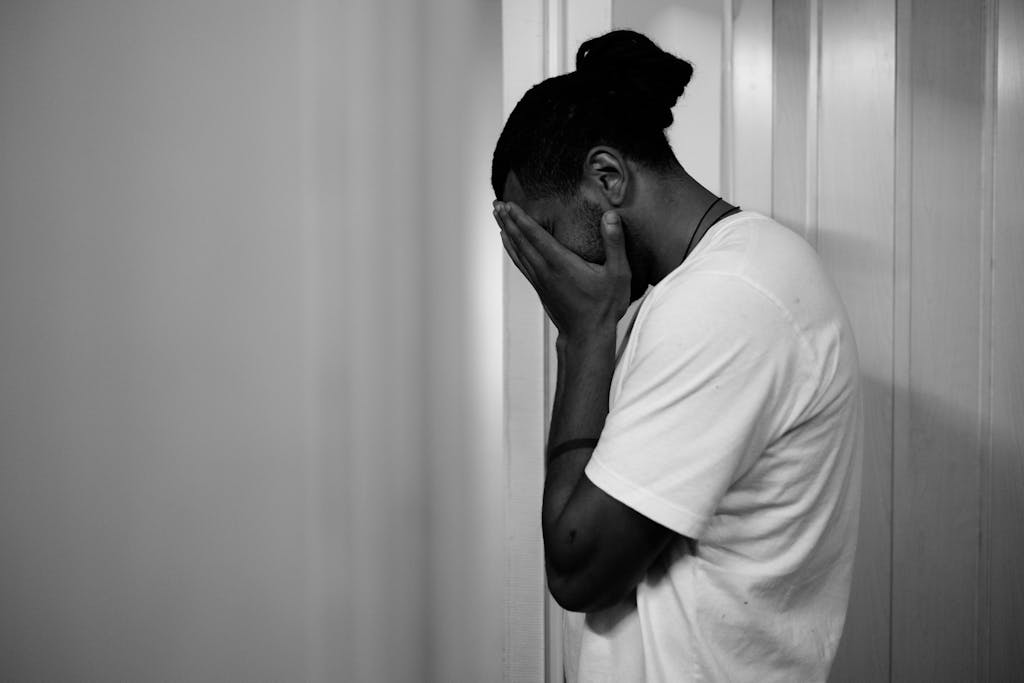Common mental health disorders impact millions of individuals globally, affecting their quality of life and ability to function. It is essential to recognize and address these disorders to maintain overall mental well-being. In this article, we will explore the most common mental health disorders, their symptoms, and effective ways to manage them.
1. Depression: A Leading Common Mental Health Disorder

Depression is one of the most common mental health disorders, impacting over 264 million people worldwide. This disorder is characterized by a persistent feeling of sadness and a lack of interest in daily activities. You can learn more about the causes and treatments from the World Health Organization (WHO).
Symptoms of Depression in Common Mental Health Disorders:
- Constant sadness or emptiness
- Loss of interest in hobbies
- Fatigue and lack of energy
- Difficulty concentrating
- Feelings of guilt or worthlessness
How to Manage Depression in Common Mental Health Disorders:
- Psychotherapy: Cognitive Behavioral Therapy (CBT) is one of the most effective approaches for treating depression. Find more details on effective therapies from National Institute of Mental Health (NIMH).
- Medication: Antidepressants can help regulate brain chemistry, improving mood and energy levels. Learn more from Mayo Clinic.
- Lifestyle Changes: Regular physical activity, a balanced diet, and quality sleep can significantly alleviate symptoms of depression in individuals with common mental health disorders.
2. Anxiety Disorders: The Most Common Mental Health Condition

Anxiety disorders, including generalized anxiety disorder (GAD), panic disorder, and social anxiety disorder, are the most common mental health disorders in the world. For more information on anxiety disorders, visit American Psychological Association.
Symptoms of Anxiety in Common Mental Health Disorders:
- Excessive worry or fear
- Restlessness and irritability
- Difficulty concentrating
- Physical symptoms such as sweating, trembling, and palpitations
How to Manage Anxiety in Common Mental Health Disorders:
- Cognitive Behavioral Therapy (CBT): This therapy is highly effective for treating anxiety. Check the research on American Psychiatric Association.
- Medication: Anti-anxiety medications, such as benzodiazepines and selective serotonin reuptake inhibitors (SSRIs), can help manage severe symptoms. Find more details from MedlinePlus.
- Mindfulness and Relaxation: Practices such as yoga, deep breathing, and meditation can reduce anxiety in individuals suffering from common mental health disorders. Explore mindfulness techniques at Mindful.
3. Bipolar Disorder: A Common Mood-Related Mental Health Disorder

Bipolar disorder is a mood disorder that involves dramatic mood swings between mania (high energy, impulsivity) and depression (low energy, sadness). It is one of the more complex common mental health disorders. You can read about its management at National Institute of Mental Health (NIMH).
Symptoms of Bipolar Disorder in Common Mental Health Disorders:
- Manic Episodes: Elevated mood, high energy, reduced need for sleep, and impulsive behavior.
- Depressive Episodes: Feelings of hopelessness, lack of energy, and loss of interest in activities.
How to Manage Bipolar Disorder:
- Mood Stabilizers: Medications like lithium are commonly used to control the mood swings associated with bipolar disorder. Learn more from Mayo Clinic.
- Therapy: Both Cognitive Behavioral Therapy and family-focused therapy help individuals manage the ups and downs of bipolar disorder. For more information on treatment, visit Mental Health America.
4. PTSD: A Trauma-Related Common Mental Health Disorder

Post-Traumatic Stress Disorder (PTSD) develops after an individual experiences or witnesses a traumatic event. PTSD is one of the more widely recognized common mental health disorders. For further information, see U.S. Department of Veterans Affairs.
Symptoms of PTSD in Common Mental Health Disorders:
- Recurrent flashbacks or nightmares
- Avoidance of reminders of the traumatic event
- Difficulty sleeping and concentrating
- Hypervigilance and irritability
How to Manage PTSD:
- Trauma-focused Cognitive Behavioral Therapy (CBT): This is a well-established approach to treating PTSD. Learn more from American Psychological Association.
- Medication: Antidepressants like SSRIs are commonly used to manage PTSD symptoms. For more information, check WebMD.
- Support Groups: Connecting with others who have experienced similar traumas can help reduce feelings of isolation, a common symptom in people dealing with common mental health disorders.
5. Obsessive-Compulsive Disorder (OCD): A Common Anxiety-Related Mental Health Disorder

Obsessive-Compulsive Disorder (OCD) is another common mental health disorder characterized by intrusive, obsessive thoughts and repetitive compulsive behaviors. Learn more at International OCD Foundation.
Symptoms of OCD in Common Mental Health Disorders:
- Repeated unwanted thoughts (e.g., fear of contamination)
- Compulsive behaviors (e.g., handwashing, checking things repeatedly)
- Anxiety if these behaviors are not completed
How to Manage OCD:
- Exposure and Response Prevention (ERP): A form of Cognitive Behavioral Therapy designed specifically for OCD. Learn more at International OCD Foundation.
- Medication: SSRIs can help reduce the frequency and intensity of obsessive thoughts and compulsions. See more on Mayo Clinic.
- Mindfulness Practices: Relaxation techniques like meditation can help manage the anxiety that often accompanies OCD, a common mental health disorder.





